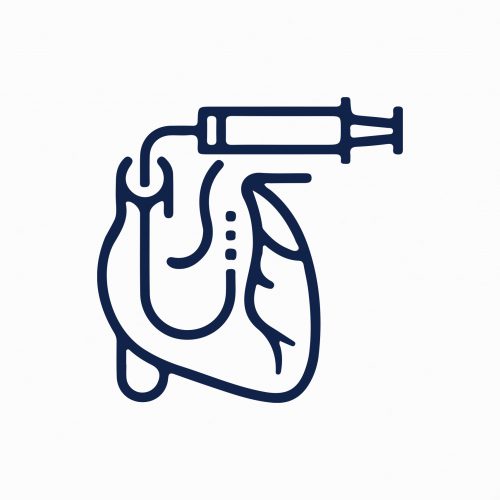Physicians use mechanical ventricular assist devices to support patients through periods of hemodynamic instability. Ventricular assist devices used for short-term support are usually brought into the patient through minimally invasive methods, mostly by accessing blood vessels in the groin (percutaneous delivery). In particular, these catheter-based devices are used in cardiogenic shock patients and patients undergoing...
Project Category: Cardiac Support
High Risk PCI
Percutaneous coronary procedures allow the minimally invasive treatment of coronary artery disease. These procedures are a mainstay of interventional cardiology and usually uneventful. However, some procedures carry an elevated risk either due to the physiological or anatomical condition of the patient, or the complexity of a particular procedure, and are deemed high-risk procedures (high-risk PCI)....
Cardiogenic Shock
Cardiogenic shock is a medical emergency characterized by the inability of the heart to pump sufficient blood volume for adequate organ and tissue perfusion. Cardiogenic shock carries a dire prognosis with a high in-hospital mortality. Ventricular assist devices are used to support the heart in cardiogenic shock patients, with the aim of unloading the heart...

